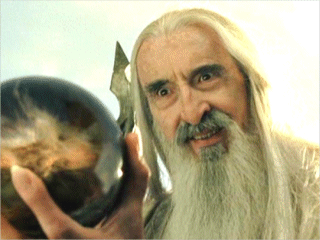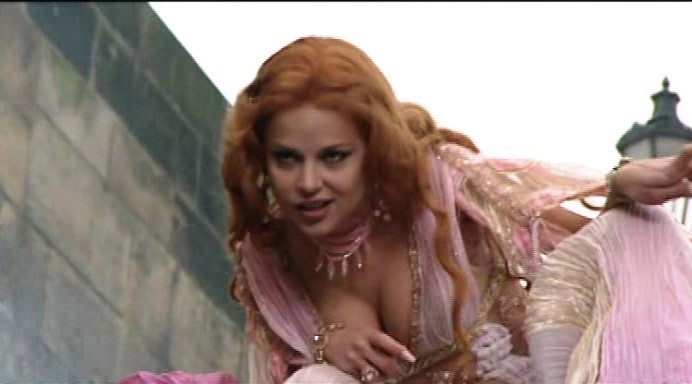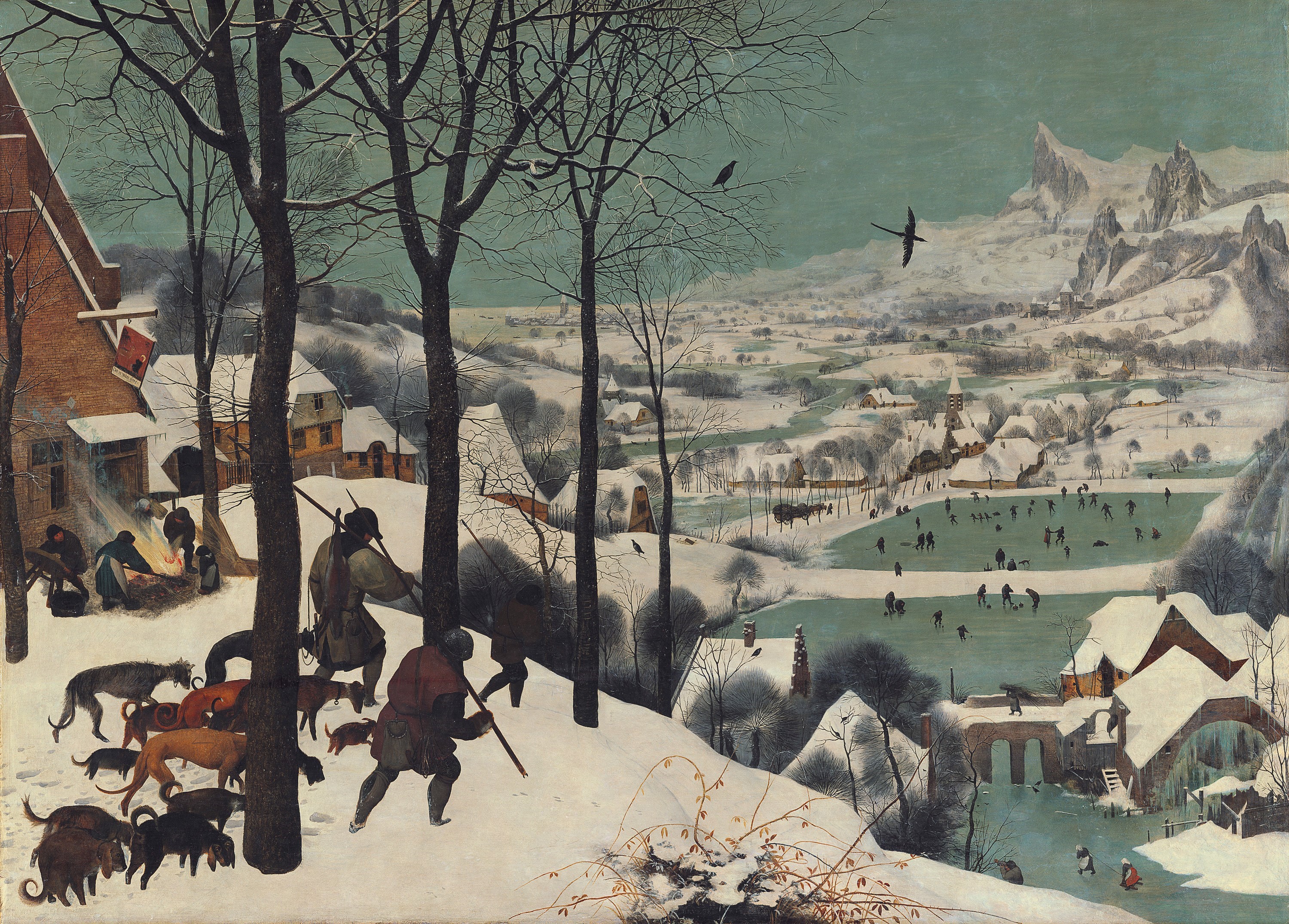Plot
 |
| A box like this one, only more ominous. |
Point of View
Ah, yes, point of view. There's not a whole lot to say here, except that I would like to keep in step with what the short story does in terms of narration. The narrator is detached, unemotional, and delivers the most crucial lines of the work ("A stone hit her on the side of the head.") with unwavering monotone. Naturally, Morgan Freeman (The Shawshank Redemption, Invictus, Million Dollar Baby, ad infinitum) will narrate The Lottery. Although the narration will retain its third-person dramatic point of view, points of omniscience and subjectivity will be thrown in when describing more fully in depth the job and life of Joe Summers. A major part of the effectiveness of "The Lottery" is the delivery of its narration; so, in creating The Lottery, the largest weight carried on the acting front must be held by Freeman. His performance will dictate the success of the movie. And to be honest, I wouldn't rather it be any other man.
Characterization
An intense and deep discussion of the characterization in The Lottery wouldn't be complete without casting the entire movie full of big hit A-listers, and I will certainly do that, but first, a general note. Obviously, by turning an 18-minute short story into a feature-length movie, I will have plenty more time to develop characterization than in the original work. I think this is a good thing, especially on the parts of the Adams family (who first question the lottery), Joe Summers, the Hutchinson family, and others. However, while adding characterization to the villagers, it will be important to maintain believability in their actions at the end of the story. Relying heavily on typecast actors, I intend for the audience to feel the dark indirect characterization from the moment specific actors make their first appearance on screen. Alright, and so we begin:
Mr. Joe Summers
Played by Johnny Depp (Pirates of the Caribbean series, Sweeney Todd: The Demon Barber of Fleet Street, Alice in Wonderland) -- The 'main' character (there really isn't one per se; he'll just receive the most face time), Joe Summers is the caretaker of the lottery and takes care of all the formalities still in place. He seems like a nice enough guy, but is certainly a driving force behind the continuation of the lottery and in the (ironic) modernization of the process.
Mrs. 'Tessie' Hutchinson
Played by Helena Bonham Carter (Fight Club, Harry Potter series, Sweeney Todd: The Demon Barber of Fleet Street) -- Although the audience may think nothing of her when she first shows up late to the lottery, they soon discover the grave importance of her character when she is chosen as the not-so-lucky winner.
Mr. Bill Hutchinson
Played by Michael Keaton (Beetlejuice, Batman series, Toy Story 3) -- The husband of Tessie, Bill plays his part in the lottery by staying calm and collected, even as his family is picked to take their second time around in the drawing.
Mr. and Mrs. Adams
Played by Will Smith (Men in Black series, I, Robot, I Am Legend) and Jada Pinkett Smith (The Nutty Professor, The Matrix series, Will Smith's wife!) -- Mr. and Mrs. Adams hold important parts in The Lottery. As the first ones to suggest that the lottery may not have to exist, they can be seen as the (slight) heroes in the story. The casting of the two is also significant; Will Smith, typecast as a hero in virtually every film he's in, will immediately be recognized as a "good" character in a cast of villains. Also, by placing his real-life wife Jada Pinkett Smith alongside him, both being figureheads as strong, successful black actors, the audience will be left to ponder how racial equality could be attained in a centuries old village (see Setting), but not the knowledge to end a barbaric yet customary stoning ritual.
Old Man Warner
Played by Sir Christopher Lee (The Wicker Man, Star Wars series, The Lord of the Rings trilogy) -- The first of many "villain" characters, Old Man Warner is probably the worst. Although it is technically Joe Summers' job to keep the lottery going, Warner plays a large part by constantly reminding those around him of how far back the lottery goes. Lee, typecast almost exclusively as an antagonist, is old enough to play Warner, yet superb enough in his acting ability to convey senility.
Mr. Harry Graves
Played by Alan Rickman (Robin Hood: Prince of Thieves, Sweeney Todd: The Demon Barber of Fleet Street, Harry Potter series) -- The mysterious postmaster who swears Joe Summers in at the beginning of the ritual, Harry Graves has a lot of power. An obvious symbol of death (his last name is 'Graves' for Pete's sake) in the short story, it helps that Rickman is known for playing nefarious roles.
The rest of the characters, though certainly important, do not benefit from having specific actors portray their parts. In keeping with Tim Burton's style, several of his favorites will make cameos and play smaller stints, and almost every villager will be played by actors who have at least made appearances as corrupt, culpable, or downright crooked characters. Some who I'd like to see:
Jeffrey Jones (Mr. Martin, perhaps?)
Danny DeVito (Not so sure about this one...)
Jack Nicholson
Tilda Swinton
Michelle Pfeiffer
Charlize Theron or Uma Thurman
(But not both; I don't want to confuse the audience!)
Elena Anaya
Sir Anthony Hopkins
Quentin Tarantino
Christopher Walken
And various others, of course!
Setting
Now, I don't know if it's the biased created from the 1969 short or what, but everyone seems to have in their mind this ultra-modern setting for "The Lottery". As far as I can see, there is no statement within the story of a time period, and other than mention of a post office, a bank, and summer vacation, there really is no indication that "The Lottery" is set in the alternate present whatsoever. If I'm completely wrong here, then we're just going to chalk this one up to creative license, because when I first read the word village in the second sentence of the work, I immediately had images in my mind of, well, The Village. As it turns out, I wasn't too far from the truth in terms of twisted ending. Anyways, I've decided that The Lottery will take place in a similar, yet slightly more innovated, 19th-century town, and I find this acceptable for two reasons. First, I can still include both a post office and a bank; these were around during that time and would fit in perfectly. Secondly, this flows more easily with Tim Burton's style, and I can easily see the resulting work being a slower-paced clash between The Village and Sweeney Todd. With Colleen Atwood (Sleepy Hollow, Lemony Snicket's A Series of Unfortunate Events, Sweeney Todd: The Demon Barber of Fleet Street) on costumes and Bo Welch (Beetlejuice, Edward Scissorhands, Batman Returns) as production designer imagining and building the set, I'll really be able to convey this sense of savagery meeting civilized world.
Theme
When it comes to the theme of "The Lottery" transposed into The Lottery, I am willing to make marginal sacrifices of the meaning of the work to ensure bigger ticket sales and better box office numbers (which is ironic, considering how I just wrote a paper stating that such sacrifices may lead to less commercial success), though with the ridiculously superior cast currently chosen, I'm pretty sure everyone in the developed world will be seeing this movie. Even so, I don't think I've changed anything drastically regarding the theme. The shock of the ending will still be present, yet plenty of foreshadowing will occur throughout the film, as it does in Shirley Jackson's original short story. In order to get an overall picture of what the feature will look like, simply examine the numerous movies given parenthetically as the cast and crew's past endeavors, and extract similarities. Many of the movies appear in numerous résumés of my chosen team, and the tones of these movies are usually very much alike; naturally, The Lottery will follow suite. Basically, now that I've spent all this time planning out my vision, I need to see this happen. Let me rephrase: My life will not be complete until the feature-length film version of "The Lottery" is created while simultaneously fitting the specifications described above.
Alright, let's do this.

































